Staying Fit

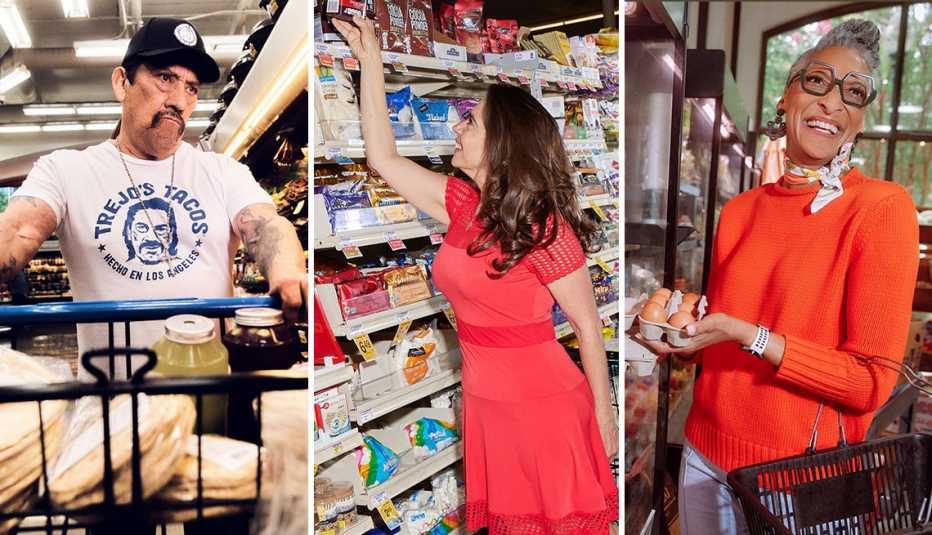
Who better than professional foodies to help us make our meals go from drab to delicious. Here’s advice from six experts on using what you have around the house to make a meal (hello tortillas!), shortcuts to save you time, what items are worth getting fresh and more.

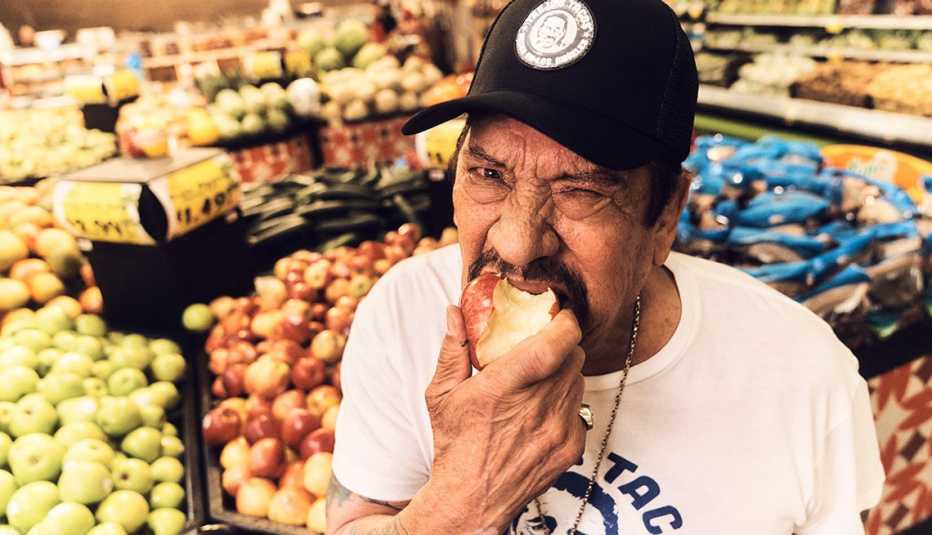
Danny Trejo, 79, actor and restaurateur
Trejo’s growing restaurant empire — he now operates a chain of five Trejo’s Tacos — demonstrates that healthy food can be fast, easy and, most important, affordable, he says. Growing up, affording healthy food was a real issue. “The first-of-the-month meals could be pretty elaborate, but then along the 15th, that’s when we’d say, ‘Hey, Mom, what’s this?’ and she’d say, ‘It’s called never mind, eat it.’ “


AARP Membership— $12 for your first year when you sign up for Automatic Renewal
Get instant access to members-only products and hundreds of discounts, a free second membership, and a subscription to AARP the Magazine.
That free-form approach to cooking has stuck with him. Breakfast is often scrambled eggs with tortillas (always traditional corn tortillas — “they’re a lot healthier”). In fact, “You can put just about anything in a tortilla,” he says. “Whatever sounds good, just put it in a corn tortilla and you’re set.” At the local market near his home in Los Angeles, he’ll always stuff his cart with fruit; come Sunday, Trejo likes putting out a big tray with blue cheese dressing, fruits and vegetables, and it’s “Let’s go, Rams!”
One thing you won’t find in his shopping cart: super-hot sauce. It’s an aversion left over from his childhood. “The men in my family would say, ‘Hey, Danny, don’t eat this, it’s for men.’ He just called you a girl! Now you gotta eat it. And it felt like your teeth would fall out.” He prefers seasoning his food with pico de gallo — “something that adds flavor rather than just heat.”
How does Trejo stay in such intimidating physical shape heading into his ninth decade? Weight training and plenty of walking.
“The biggest problem, especially in the Latino community, is that a lot of our food is starchy, a lot of our food is fatty,” he says. “So if you don’t exercise, it’s going to sit there and you’re going to get fat. I’ve been the same weight — 175 — for years.”
What’s in Trejo’s cart: Eggs, chicken, corn tortillas, cheese, mangoes, ice cream and some not-too-spicy hot sauce

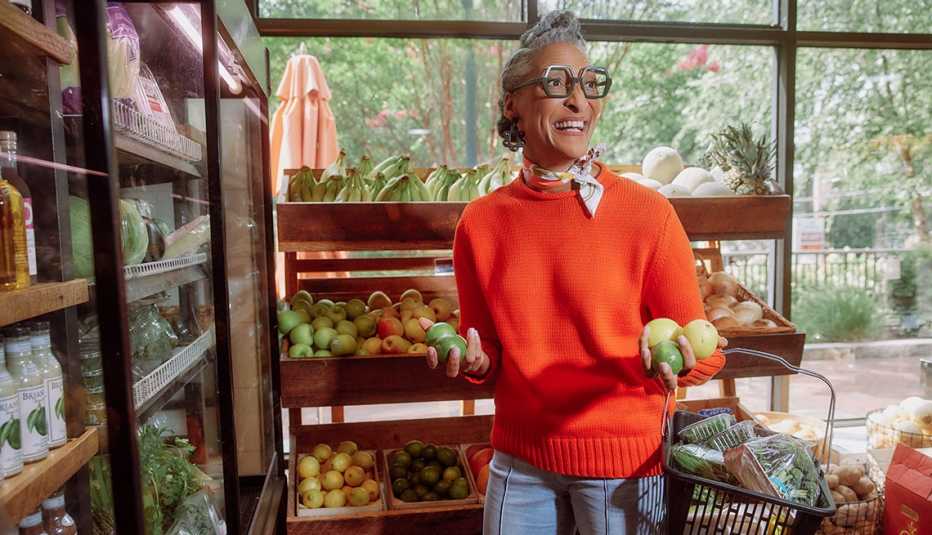
Carla Hall, 59, chef and TV host
During the COVID pandemic, Hall thought she might want to become a bodybuilder. She started working out like a fiend while following a strict regimen that included eating lots of broccoli, chicken and rice. “Then I realized that the women had to wear those crazy suits and high heels, and I was, like, ‘Oh, no!’ ” laughs the former star of The Chew.
Today, easy and sensible is Hall’s shopping strategy. A frequent choice is a bag of pre-shredded vegetables like Brussels sprouts and cabbage. “I never bother to cut them myself,” she confides. And knowing how to cook them is crucial. “A lot of people overcook their vegetables,” she says. Instead, try cooking them briefly using high heat in an oven, skillet or grill. “I have even gotten people to like asparagus: Cook them in a little cast-iron skillet, sear them until they’re slightly bendy, and add a little salt, lemon zest and herbs.”
Salads are another way she keeps things simple. “A lot of people don’t think about texture” when it comes to salads, she advises. “You need something smooth and something crunchy and something chewy.” Her secret salad tip: She buys cherry tomatoes on the vine, then soaks the vines in olive oil, giving the oil a grassy tomato flavor. She makes her own dressing with yellow mustard, hot sauce, a bit of honey, oil and whatever vinegar is on hand. “Put it all in a jar and shake it. It’s easy.”
One area where Hall doesn’t scrimp: “Eggs. My grandfather was a doctor, and there was a lot of bartering for his services, and we would often get eggs that were just harvested. It’s such a different taste — there’s nothing like it.” And while she still often returns to her chicken, broccoli and rice, one thing that has changed in recent years, Hall says, is how she cooks: During the pandemic, she dusted off the air fryer in her attic and learned how to use it. “It’s become my best friend.”
What’s in Hall’s cart: Precut veggies, tomatoes on the vine, full-fat dairy and lots of eggs





























































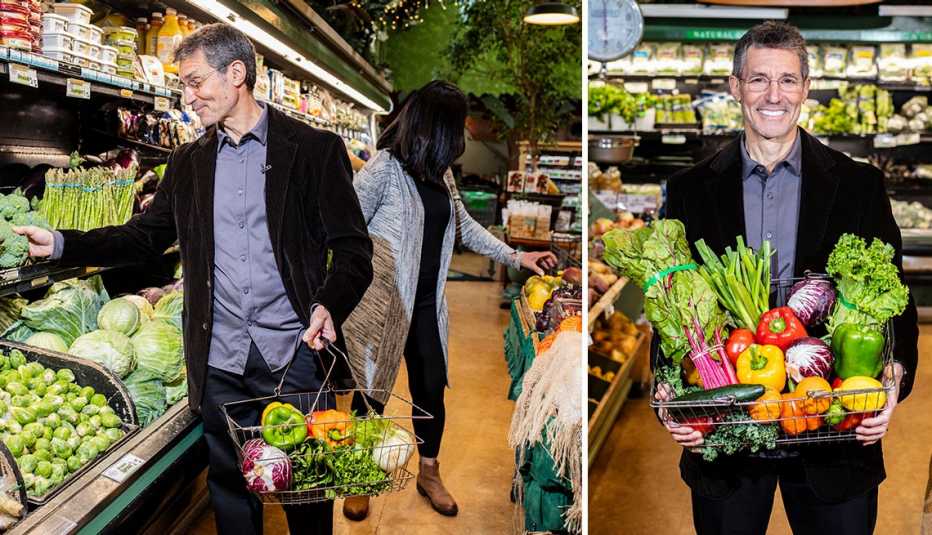
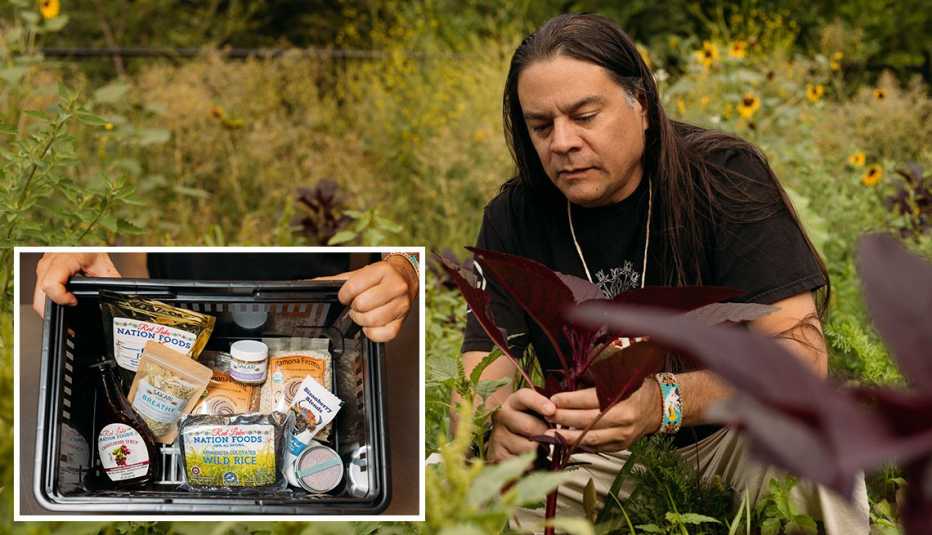

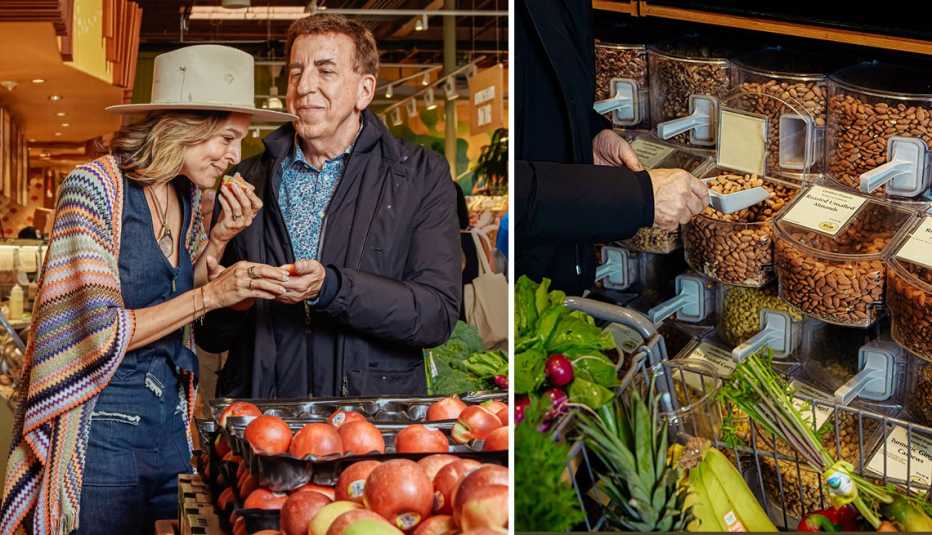
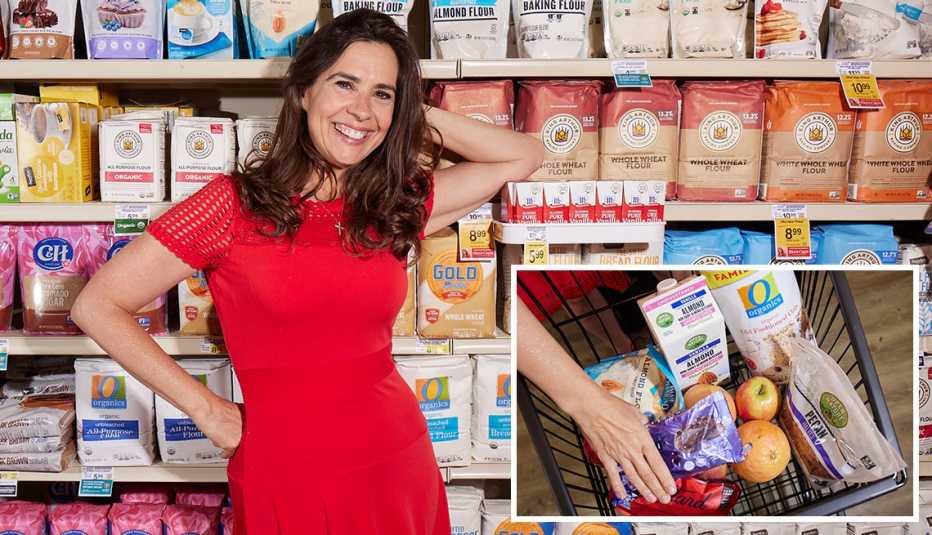



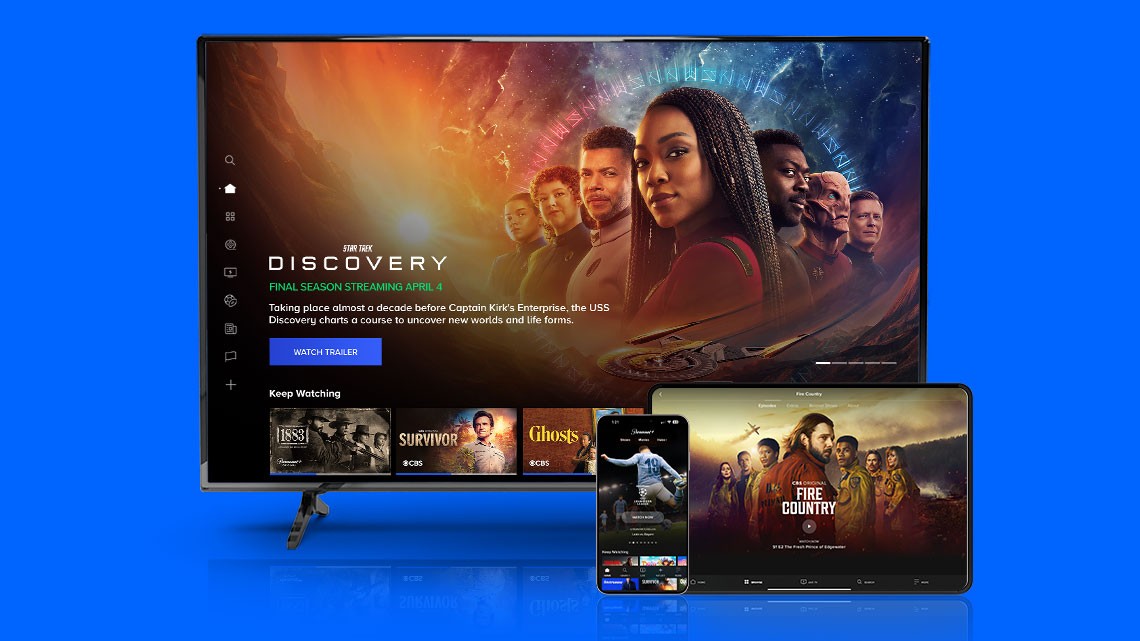
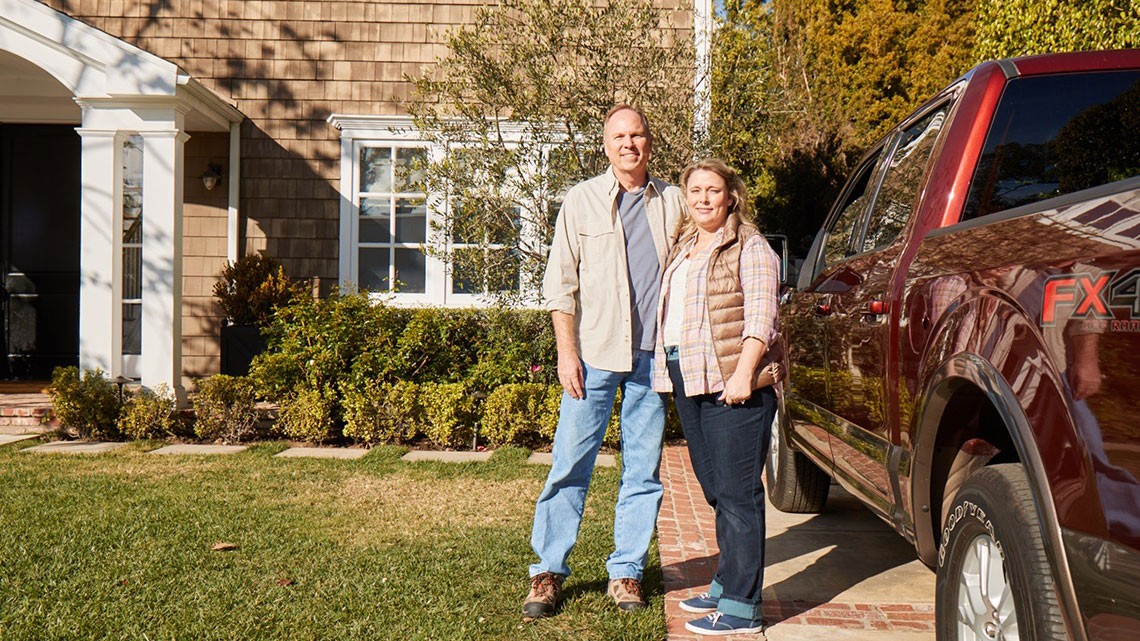

More From AARP
Stretch Your Food Budget With Tips From Chef Lidia Bastianich
From freezing tomatoes to using alternative cuts of meat, the restaurateur learned at a young age how to make food go further
What's in Al Roker's Shopping Cart
The 'Today' cohost lets us peek at his grocery list and tells us his favorite place to shop
Staples You Should Always Buy On Sale
If they store well or freeze well, jump at the chance to buy on sale
Recommended for You